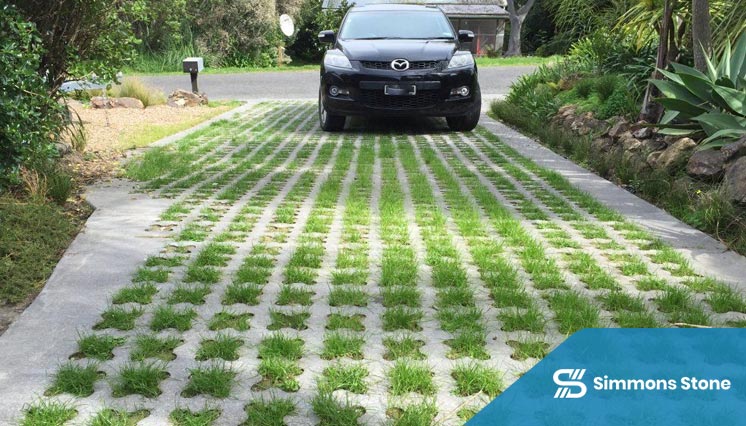More About the Solution
Permeable paving refers to paving systems that allow water to pass through the surface and into the ground below, rather than running off into storm drains. These systems use porous materials or spaced units with drainage gaps, along with a carefully layered sub-base that filters and disperses water.
They’re ideal for environmentally sensitive areas, properties with strict runoff requirements, or anyone looking to reduce surface flooding and support groundwater recharge.

Our Permeable Paving Services
Permeable Paver Installation
Interlocking concrete or stone pavers with joint spaces that allow water to seep through into a drainage bed below.
Pervious Concrete Surfaces
A special concrete mix with reduced fine aggregates, leaving voids that let water pass through while still offering structural strength.
Porous Asphalt Paving
A high-performance mix that mimics traditional asphalt but allows water infiltration—great for roads, lots, and trails.
Gravel Grid Systems
Reinforced plastic or concrete grids filled with gravel, allowing for a stable, permeable driving or walking surface.
Hybrid Drainage Designs
We also install permeable hardscapes alongside rain gardens, swales, or biosystems to maximize stormwater control.

Benefits of Permeable Paving
- Stormwater Management – Reduce runoff, erosion, and pressure on municipal drainage systems.
- Environmental Impact – Improve groundwater recharge and reduce pollutants entering streams and lakes.
- Regulation Compliance – Meet local building codes and environmental guidelines with confidence.
- Durability & Performance – Many permeable systems are just as tough as traditional options, with added drainage advantages.
- Reduced Heat Island Effect – Permeable materials retain less heat, helping to cool surrounding surfaces.
FAQ
Is permeable paving more expensive than traditional paving?
The initial costs can be slightly higher due to specialized materials and base pre. But you will find long-term savings as it helps to reduce drainage infrastructure and avoids many runoff-related repairs.
Does it require more maintenance?
Permeable surfaces need periodic cleaning like vacuum sweeping or power washing to prevent clogging. But overall, they are considered to be low-maintenance and long-lasting.
Can permeable paving handle vehicle traffic?
Some of the systems are engineered for driveways, parking lots, and even light road use. Proper base construction is important when you are looking to support load-bearing capacity.